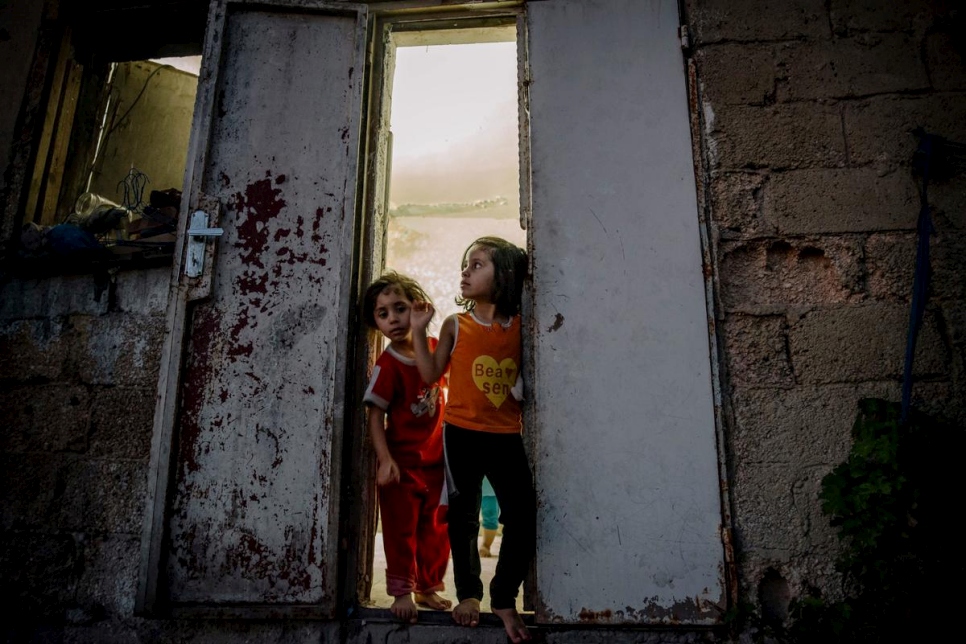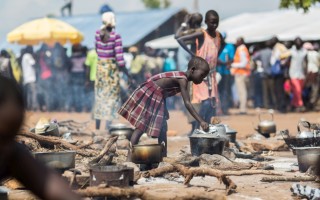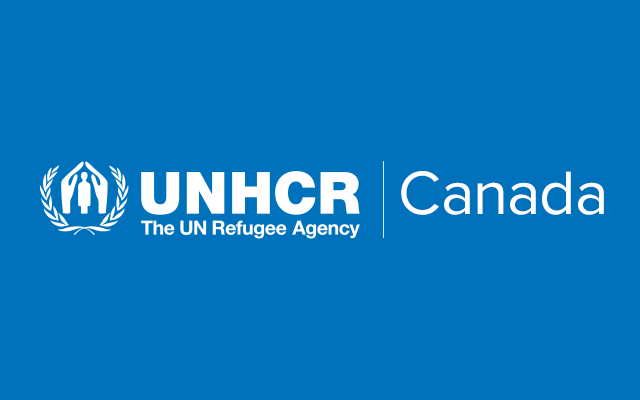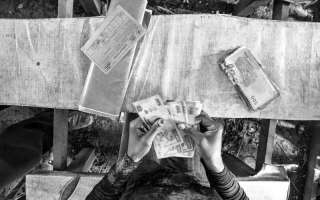
Syrian refugee Mais, and her younger sister Anaghem, stand at the door of their apartment in Amman, Jordan, in this 2014 file photo. © UNHCR/J. Kohler
Funding appeal launched at Helsinki event seeks to ease desperate plight of 4.7 million refugees and neighbouring countries hosting them.
HELSINKI, Finland – Nearly six years since the start of the Syria conflict, United Nations agencies and NGO partners on Tuesday appealed for US$4.63 billion in funding to meet the growing needs of Syrian refugees that have fled the fighting, as well as the struggling communities hosting them in neighbouring countries.
The funding is designed to provide lifesaving support to more than 4.7 million Syrian refugees, the vast majority of whom live below the poverty line and face a constant struggle to pay for food, rent and health care.
Assistance is also needed to help ease the burden on local communities in Turkey, Lebanon, Jordan, Iraq and Egypt, where the protracted crisis has placed a huge strain on limited resources, infrastructure and vital services.
“Syrian refugees and host communities need our support now more than ever.”
“Syrian refugees and host communities need our support now more than ever,” UN High Commissioner for Refugees Filippo Grandi said in remarks ahead of an event in Helsinki to launch the funding appeal.
“The international community must send a clear message that it stands with them and provides the urgently needed support. UNHCR and partners are ready to address the needs and vulnerabilities of Syrian refugees and the communities hosting them, but require the necessary and flexible funding to do so.”
Kai Mykkänen, Finland’s Minister for Foreign Trade and Development, said the international community has a duty to support the humanitarian relief effort as best it can.
“The news from Syria has been heartbreaking. We’ve observed a huge increase in humanitarian need and are aware of the great burden carried by the neighbouring countries. By hosting this key event, Finland wants to highlight the vital work done by the UN and Syria’s neighbours,” he said.
Around 70 per cent of all Syrian refugees are women and children, with half of school-aged children currently not enrolled in formal education. Among the priorities of the funding plan for 2017 is the need to boost educational opportunities for young Syrian refugees to avoid the threat of a “lost generation.”
Other features of the response include protecting the rights and safety of refugees, creating new livelihood opportunities for Syrians in exile, and ensuring access to basic and lifesaving healthcare for both refugees and host communities.
The great need for aid was highlighted by refugees themselves, among them Wardah, a 32-year-old Syrian refugee from Raqqa, who lives with her five children and mother-in-law in a one-room apartment in the Jordanian capital, Amman. With her husband currently back in Syria and unable to join them, she says the family is utterly reliant on the assistance they receive from UNHCR, the UN Refugee Agency, and other UN agencies to survive.
“Just paying the rent is a constant worry, and I live in fear that we will end up on the streets.”
She receives 215 Jordanian dinars (US$300) each month in UNHCR cash assistance, which is barely enough to cover rent and utility bills, plus 120 dinars (US$170) in World Food Programme food vouchers, which must feed the family of seven for a month.
“We’ve been here for three years, and Jordan has been like a second home for us,” Wardah said. “But just paying the rent is a constant worry, and I live in fear that we will end up on the streets.”
Her two eldest children, aged eight and nine, attend a local Jordanian school free of charge, but during winter Wardah must find extra cash to pay for warm clothes and public transport to get them to class. As a result, she has fallen two months behind in her rent payments.
“My landlord is very kind and he allowed me to delay paying the rent, but even he cannot wait for ever. Even with the extra money I make sometimes cleaning houses, it is not enough,” Wardah explains, the anxiety clear in her voice.
“I dream that we will go back to Syria and be reunited with our family again, but it is still impossible. Until then, all I want is a safe place where my children can grow up in peace.”
Writing and additional reporting by Charlie Dunmore in Jordan.
Article originally posted on unhcr.org.





